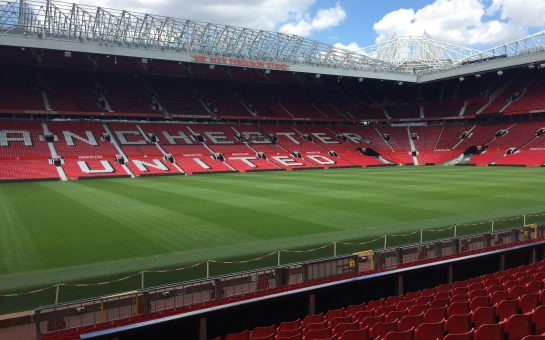Is Phil Neville a good manager? Will England, or anyone, ever reach USA’s level?
Are parent clubs from men’s football harming the women’s league?
These were just some of the topics up for discussion at the National Football Museum on Friday night as part of the annual Football Writing Festival.
The festival arrived in Manchester on September 4 for five nights of footballing chat and speculation from some of the biggest names in journalism. The festival, in Manchester for the sixth time, kicked off on Wednesday with a discussion on football finance before Thursday’s marquee event The Blizzard, Live!
On the eve of the 2019-20 Women’s Super League, Friday’s talk centred on exactly that: Hidden history no more? The future of the women’s game.
Host, and optimist, Suzy Wrack (The Guardian) was joined by author, freelance journalist and cynic Carrie Dunn (The Roar of the Lionesses) and The Athletic’s Kieran Theivam for what turned out to be a fascinating evening.
Taking the format of a Q&A, steered beautifully by Suzy Wrack, the trio discussed England’s performance at this summer’s World Cup, Neville’s decision to move Lucy Bronze into midfield – “why not play the best player in the world in her best position?” quipped an irate Dunn – and the impact of professionalisation on the women’s game amongst a host of other topics.
The evening came to life during the final 45 minutes when the audience were invited to participate in the questioning. Thanks to an American attendee, we were treated to a lively debate on the pros and cons of the American college system versus the English academy system.
Theivam was a fan of the winning mentality instilled in American players from an early age but criticised the comparative lack of footballing IQ – a sentiment echoed by the American herself.
Dunn, however, was slightly more critical, praising the number of girls playing football in America but bemoaning the college draft system which spits so many onto the scrap heap of former players.
Other audience members recounted their experiences of attending the World Cup (anger at the difficulty of securing disabled tickets), criticised the media disappointment at England’s fourth place finish or voiced their longing for a return to summer league football (how do you support a men’s and women’s team if the seasons run simultaneously?)
Perhaps the most fascinating topic of the evening centred on this weekend’s big talking point: women’s matches in men’s stadiums. The Etihad, Stamford Bridge and Ashton Gate all hosted women’s fixtures this weekend in what was touted as a big step forward for the WSL.
I expected the panellists, being three champions of women’s football, to celebrate this development but I was wrong. Even Wrack’s glass half full spirit wavered for a moment.
The general consensus was: if the stadiums can be filled, by all means play at higher capacity venues but don’t sacrifice atmosphere for appearance.
Theivam compared the near empty Allianz Riviera (Nice) for England v Scotland to Chelsea’s Champions League fixture against Lyon at Kingsmeadow. Chelsea’s 4,850 capacity ground was packed to the rafters and rocking; in Nice there were around 20,000 empty seats and a funereal mood.
Theivam also criticized the location of the regular domestic stadiums. Thanks to geography, many of the WSL/WSL 2 teams have different catchment areas to the men’s side. Reading Ladies, for example, play their home games in Wycombe, Manchester United in Leigh.
Enticing fans with a fixture at a local stadium before informing them that the rest will be up to an hour away is not the way to encourage regular support.
Wrack summed up the situation beautifully: “How many of these fans will you see at Borehamwood [Arsenal] on a cold November night?”
From an armchair view, women’s football has never had it so good. A fully televised World Cup tournament, domestic fixtures in stadiums capable of holding 40,000+ and increased professionalisation.
Add to that the record 30,000+ in attendance for Manchester City’s 1-0 win over rivals United on Saturday at the Etihad and the future looks bright.
The journalists, however, are taking a more cautious approach and agree it will take at least a season before we can assess the post-World Cup progress of the women’s game.
Fingers crossed Wrack, Theivam and Dunn return to the Football Writing Festival next year to deliver their findings.
Image courtesy of Football Writing Festival via Twitter, with thanks.



